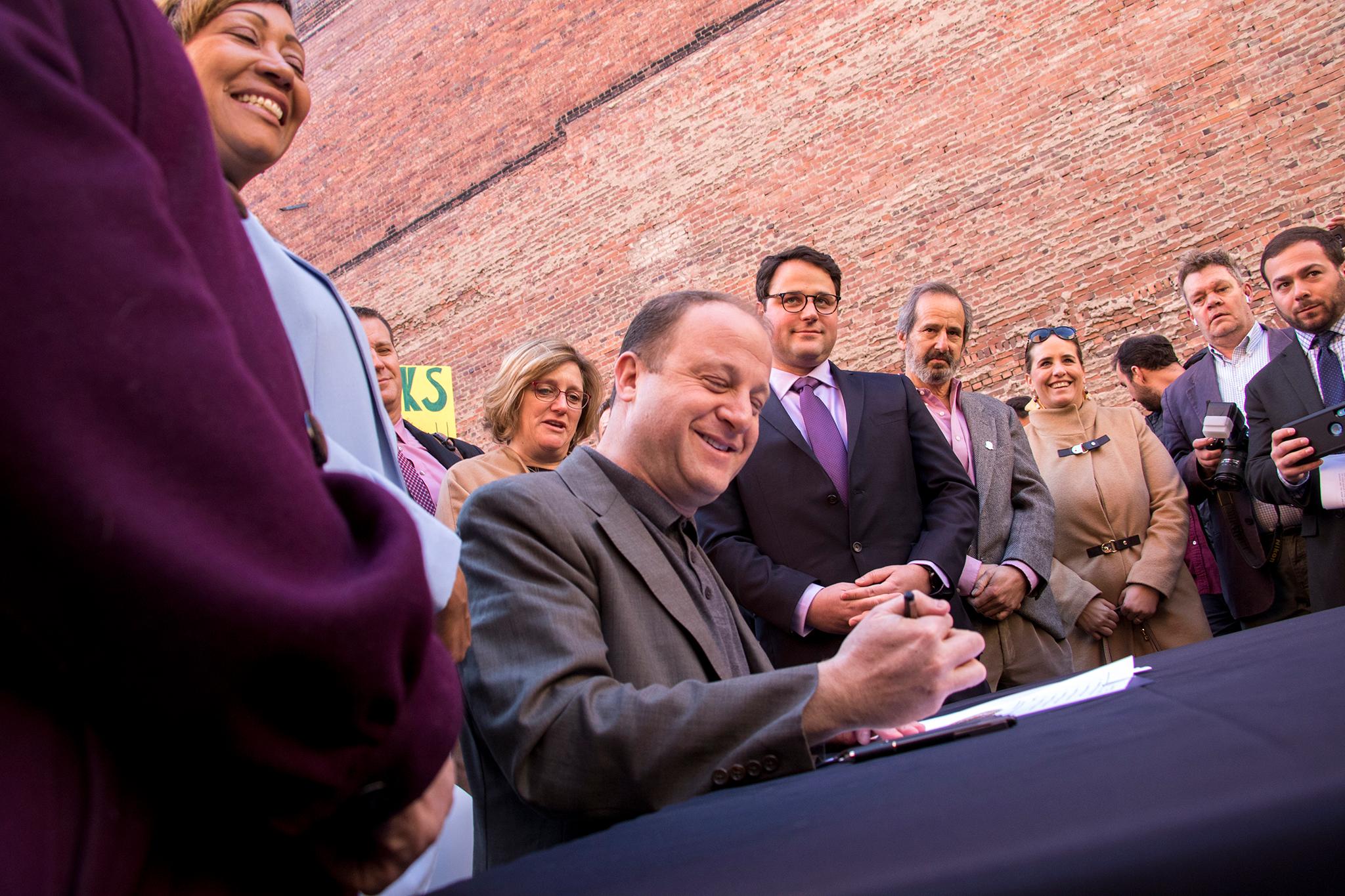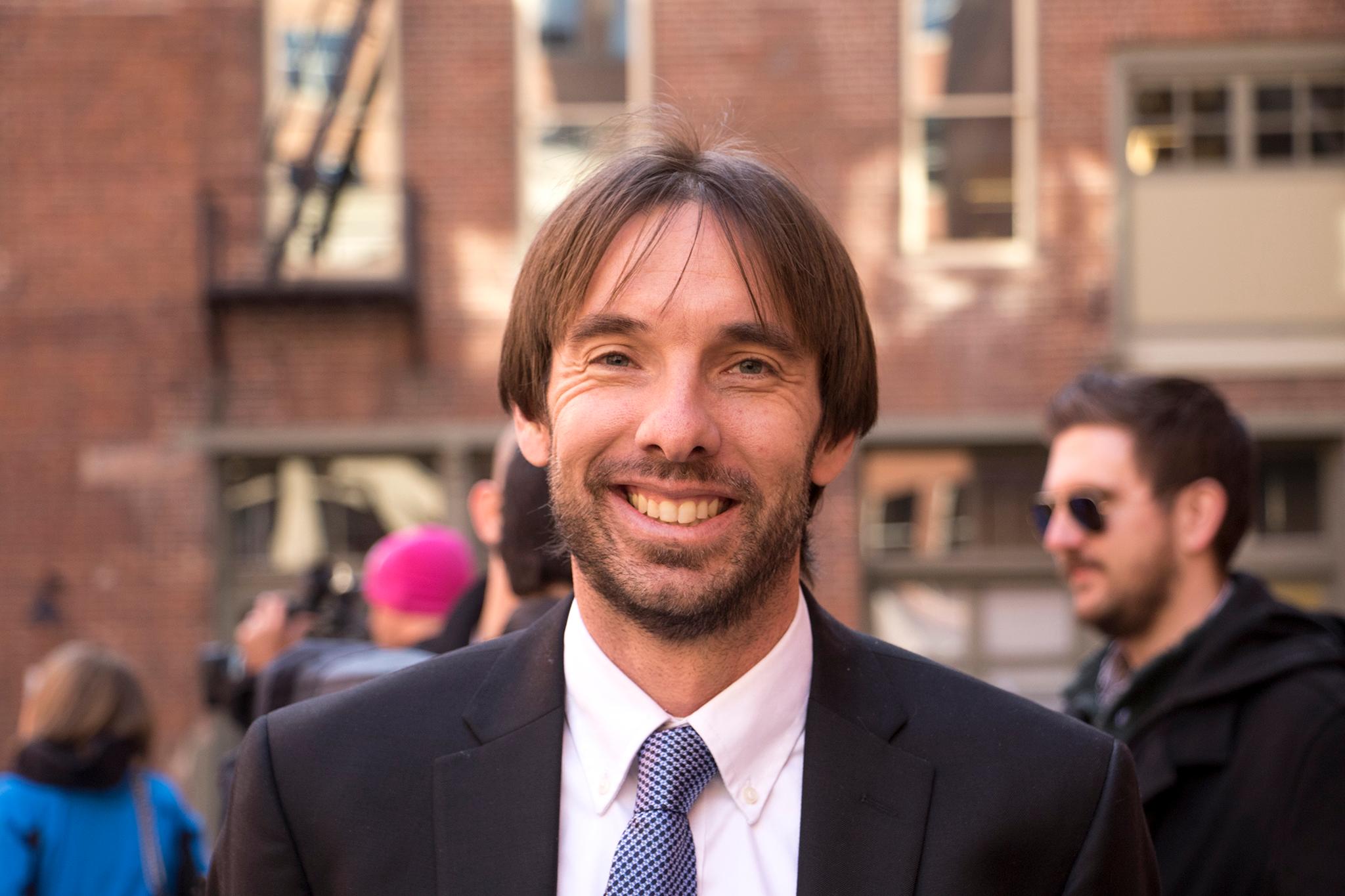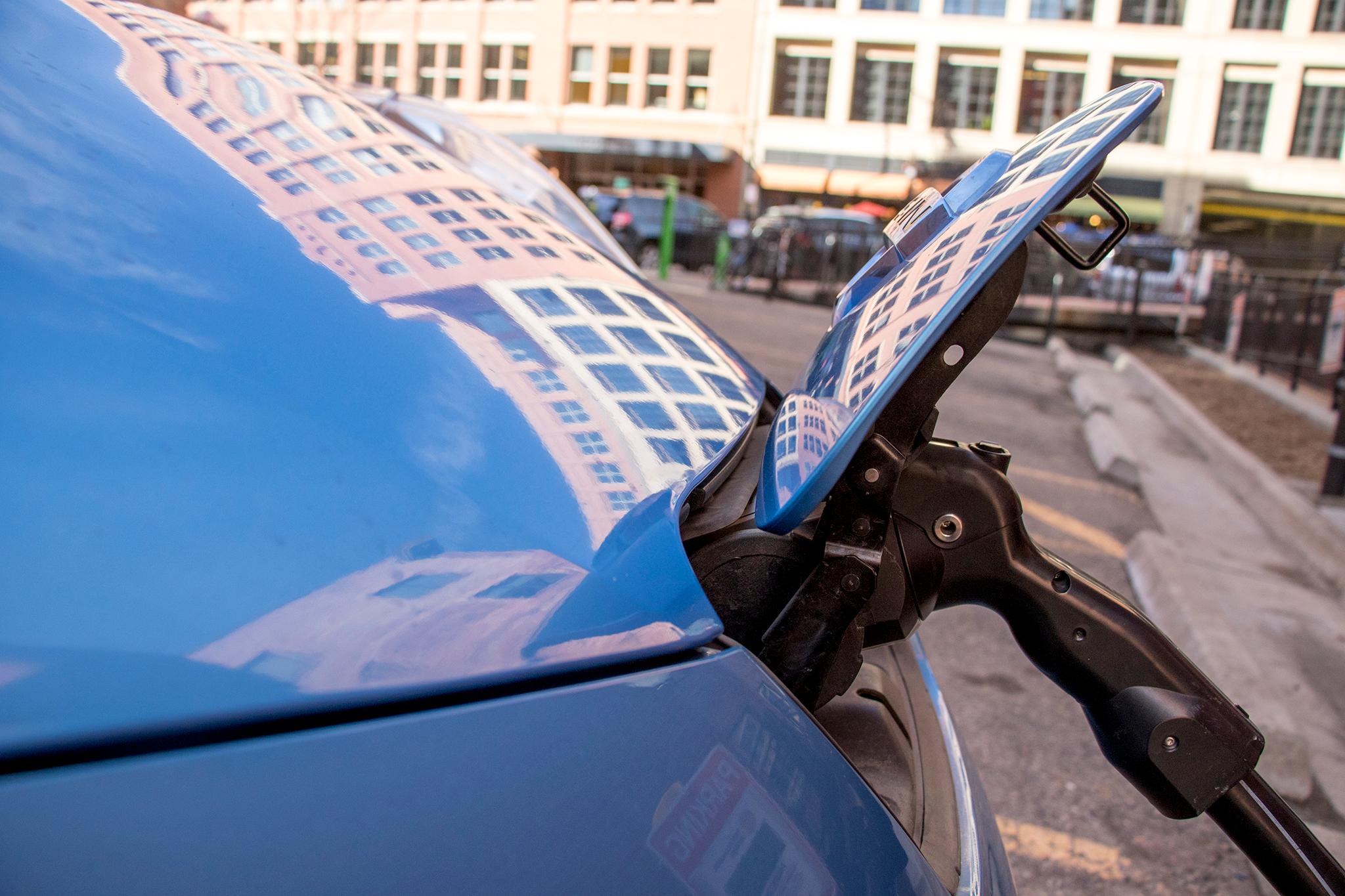Gov. Jared Polis stepped out of a sneaker-blue electric car on Thursday to announce his first executive order, a measure that could make it easier for Coloradans to purchase zero emission vehicles. The goals, he told a crowd of supporters and press, are to reduce air pollution and increase savings.
But getting more of those cars and trucks on the road is just one piece of the equation. Drivers need charging stations, too, and it's largely up to local governments to encourage the kind of infrastructure growth that will allow Polis' new directive to flourish. Denver has nearly 300 public stations so far, mostly managed by private owners, and the city is looking into ways to keep them coming.
Let's start with the executive order:
Polis' order, titled, "Supporting a Transition to Zero Emission Vehicles," issues four directives:
- The governor is creating a workgroup that will strategize how to get more EVs on the road in Colorado. They'll report to him annually, beginning July 1, 2019.
- CDPHE, the state's health agency, will establish a statewide EV program that will use authority under the Clean Air Act to require that new cars sold in the state adhere to California's air quality standards. Their new rule could be adopted under state law in October.
- CDPHE will also focus the nearly $70 million granted to the state from Volkswagen, after the company was found cheating U.S. emissions tests, on electric vehicle development. This means that an agency like RTD or DPS can request money from that pot specifically to buy electric buses. Prior to the order, that money could have been used to buy vehicles that ran on natural gas, but now the fund's use has been refocused. 15 percent of this money was already dedicated to build charging stations, mainly along interstates.
- CDOT will also create an EV program to coordinate transportation investments in ways that will support the growing electric fleet.

In his statement, Polis said these efforts will help Colorado become completely powered by renewable energy by 2040, and he added that moving away from gasoline will have effects in the short term: "Zero emission vehicles clean our air today."
The Front Range has struggled with ozone pollution in the last decade. Summertime levels are so high that we're out of compliance with federal standards. A 2017 report from the National Center for Atmospheric Research estimated that traffic contributes to the region's ozone pollution as much as oil and gas operations, and the number of vehicles on the road continues to grow. New car and light truck registrations continue to break state records, and many of those are here in the metro area.
EVs, of course, still rely on power plants to operate. But Danny Katz, director of the Colorado Public Interest Research Group, told Denverite that the state's electric grid is clean enough that a fleet of electric cars will contribute less air pollution than the gas-powered vehicles currently on the road.
"It is cleaner right now," he said, "and it is set to get even cleaner."
So, what's Denver doing?
Mike Salisbury, who's in charge of the city's EV program, said that Denver has about 70 public chargers that are rated "level two" or higher, meaning that they charge faster than a standard outlet. They're looking into installing about a dozen more in 2019, but the biggest impact will come through building code modifications.
Right now, Denver's code requires that conduits or capacity be made available in new single and two family homes. Builders don't need to install plugs, but they need to have enough infrastructure in place that it would be easy to add one later. Salisbury said the city will revise building codes again this year, and they're looking into adding similar requirements for new commercial and apartment buildings.
He also said that Denver is considering ways to encourage "neighborhood fast charging stations" at grocery stores or rec centers: "You go there for half an hour, you fill up for the week and you're done."
While the city is installing some of their own infrastructure, Salisbury said they're "trying to partner as much as possible with the private sector."

Last year, Katz's group released a report that estimated Denver needs to build about 1,200 more charging stations to keep up with growing demand. That was before Polis' executive order, but Katz said the number still fits within their projection.
In the meantime, Katz said he's encouraged by these new developments, but added the state still has a long way to go.
"The amount of electric vehicles we have is so small," he said. "We just gotta go all in."












